|
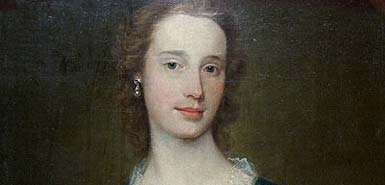 Sister to Archibald, Duke of Douglas, who died in 1761 leaving
no heir. Sister to Archibald, Duke of Douglas, who died in 1761 leaving
no heir.
Archibald was created Duke of Douglas
in 1703. He fought for the Hanoverians at Sheriffmuir
in 1715 and he supported the government in the '45 rebellion. He had no heir and
the Dukedom died with him in 1761 being limited to male heirs of the patentee.
His death created quite a controversy over the rights of accession, that became
a lawsuit of long duration.
Although the Dukedom expired with Archibald, the Marquessate and numerous
other subordinate titles should have fallen indisputably to the Duke of
Hamilton, being descended in the male line from William,
1st Marquess of Douglas. However, Archibald had a sister, Lady Jane Douglas,
who had born twins, Archibald
and Sholto Stewart, under suspicious circumstance while in France in 1748. The
twins were brought to Britain in 1749, but the Duke refused to acknowledge them
as his heirs. Furthermore, he cut off his sister's allowance and subjected them
to abject poverty. Lady Jane died in 1753 being preceded by the youngest of the
twins, Sholto. It seems that near the end of his life the Duke felt some remorse
for his harsh treatment of his sister and in his last illness executed a deed
admitting the right of his nephew,
Archibald
Stewart.
Considerable doubt was expressed over the births of the 'twins'.
She and her husband, Sir John Stewart, moved to Aix-la-Chapelle, France soon
after their marriage and there Lady Jane found herself to be pregnant. It would
be assumed that a woman of such advanced years, pregnant for the first time,
would take great care and settle down in comfort to await the birth. Lady Jane,
however, abruptly moved from Aix-la-Chapelle to Paris in the eighth month of her
pregnancy accompanied only by her husband and a maid. Supposedly this was to
place her under the care of the best doctors in France.
In the end the doctor who delivered the babies could never be found nor could
the woman who was purported to have owned the house in which the births took
place. Even though twins were reported in letters, the couple returned to Rheims
in July, 1748 with only one infant. When questioned about the other baby it was
said he was left in the care of the doctor. It wasn't until November, 1749 that
the couple, again in the company of the same maid, returned to Paris to retrieve
their son. Interestingly, it was later found that there had been two kidnappings
in Paris in that period of time, one in July, 1748 and another in November,
1749. Witnesses claimed, in both cases, that the baby boys were carried off by a
Lady, a Gentleman and their maid.
Documents discovered, in summer 2008, in the archive of the present
Earl of Home suggest that Lady Jane lied, that she connived in her
husband’s planned deceit, and that she regretted the falsehood ever after.
The writer Karl Sabbagh, who has been researching the Douglas Cause for
several years, has unearthed a document in Lady Jane’s handwriting which,
he says, suggests that she was guilty, and she was well aware of the
enormity of her crime.
“In the light of the ambiguous results of the years of legal
investigation and court hearings, I didn’t expect to find much more than
picturesque detail in the archives,” Sabbagh said. “I came across various
letters written in a firm and measured way by Lady Jane about aspects of the
case. But one document in her own hand is very different. It is a litany of
guilt, written hastily and full of emotion to her God, in a barely legible
scrawl.”
It is a letter craving forgiveness, Sabbagh believes. “O Lord of Infinite
Mercy and Great Compassion,” it reads, “this is a day of great Perplexity
with me and of great trouble & distress therefore I come to thee say thou
the word and thy servant shall be healed thou even thou only can heal the
brocken [sic] in heart and bind up all their wounds but I’m not worthy of
such as this when my crimes are gone over my head and are a heavy burden too
heavy for me to bear . . . Cleanse me from all my vileness and wickedness
and make this guilty heart yet a sacrefise [sic] of Praise unto thee.”
Sabbagh said: “She was clearly in a highly emotional state when she wrote
it and although she does not mention a specific cause for her guilt, these
are the outpourings of a woman who feels herself a sinner and craves
forgiveness, perhaps on the point of death, to avoid the torments of
hellfire.”
Sabbagh came across a second item in the Home archives that shows that
one of the lawyers for the Douglas side, James Carnegy of Boysack, had
increasing doubts about Lady Jane’s innocence, despite representing the
family. He spent a considerable time in Paris, and wrote a journal of his
day-to-day activities, which shows his increasing frustration at the
attempts of Lady Jane’s sister-in-law, the Duchess of Douglas, to go to any
lengths to gather evidence in favour of her nephew, who stood to inherit. He
came to believe that the Duchess was clutching too readily at made-up
stories that supported Archibald Douglas’s claims and ignoring any evidence
in favour of the Hamilton case.
“I know the Duchess well enough by sad experience to be sensible that she
detests nothing so much as such discoveries,” Carnegy wrote, “and that in
order to please her you must find out stories that appear favourable to her
views, though they be never so vain and illusory . . . I am sorry to say it
even to myself, that when the foundation is false it is a difficult matter
to raise a superstructure that is good and honest and of which the different
pieces tally and correspond.”
Sabbagh said that the insight the document offered on the scandal was
compelling. “It is clear from Carnegy’s journal that it was not meant for
anyone else’s eyes, and that he was being ruthlessly honest with himself. He
described one of the witnesses for Douglas as a ‘bitch’ and another as a
‘rascal’, and the terms in which he wrote about his client, the Duchess,
would have had him drummed out of the legal profession if they had come
out.”
So where does the new evidence now leave the reputation of Lady Jane –
and the Douglas cause? “I believe she was a devout and virtuous woman,”
Sabbagh said. “But I also believe it’s possible that she connived at a plan
to buy the babies, perhaps devised by her husband, and then bitterly
regretted it afterwards.”
Some of the personalities involved: (Click to enlarge)
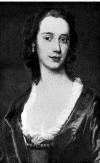
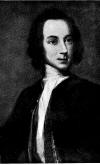
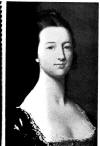
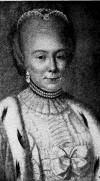
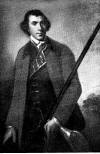
|
|


